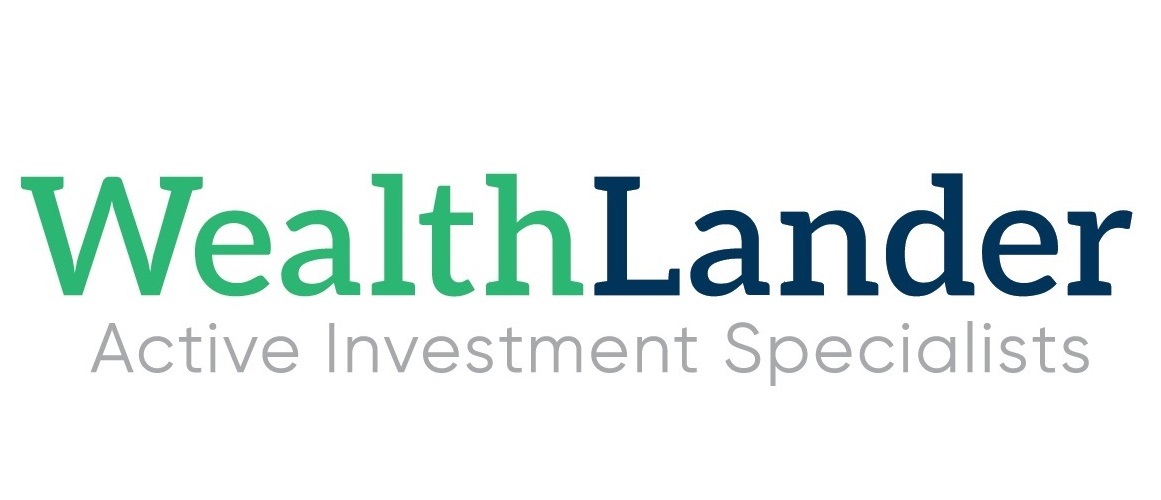October 2022

September was a historically poor month in markets. In our previous article, we predicted the essence of what happened, including calling all three key interest rate rises View Insight. Among the most relevant learnings is how investment strategies cope with these real-life stress tests of the new 2020s investment environment and how they will cope with future crises.
Fortunes are made over the entire investment cycle in bear markets by staying invested, but very importantly not suffering too much from the worst or majority of the falls. This is due to the power of compounding, which means large losses are much more impactful on long-term returns than equivalent large gains. Hence, the ability to not be destroyed by crises is highly relevant to any long-term investment strategy – it must be able to survive outside the most favourable investment environments alone.
The 2010s and even the period from the early 1980s until recently was one of the most favourable investment periods of all time – it is highly unlikely to be repeated in your lifetime – quite the opposite. Future crises likely remain ahead of us and may indeed be a predominant feature of the 2020s, so it is essential to be prepared today.
Fortunately, it is not too late to adapt. There is a lot for investors to learn from September and 2022 so that you don’t continue to unnecessarily suffer from being poorly invested and poorly diversified:
(1) Am I truly investing actively and well?
Despite historically large falls in equity markets, many active strategies did not suffer much, if at all, in September 2022. Active management can (and often should) help broaden one’s sources of returns and mitigate downside risk. Doing so not only better aligns portfolios with the objectives of most investors (who hate losing money more than they like making it) but also enables better long-term compounding. Recovering from large losses is much harder than not losing too much in the first place. In contrast, those without this diversification and who are primarily invested in passive funds are being played for a fool as one of the greatest and most widespread asset bubbles of all time recedes in the face of historic challenges from inflation, interest rates and geopolitical pressures.
Of course, any caring human would prefer policy be built around more equitable economies focussed on real productivity and real economic growth rather than fake wealth and easy money, but alas that hasn’t been the emphasis of policy in recent decades. This is unlikely to change soon given the state of the world and bureaucratic and political emphasis in many countries. As investors, we need to cope with the hands we’ve been dealt even if politically and socially we are outraged with the historic misdirection and misallocation of capital, and hence a waste of opportunity to build more productively for our future. We obviously need to be more productive as populations age and in the face of geopolitical threats to the status quo (which have been so beneficial to Western economies in times past and allowed us to become so complacent).
(2) Am I falling for the marketing hype?
Many funds state they have downside protection and capital preservation but have not delivered it in 2022 and remain unlikely to do so in future. Their marketing is sales spin – rather than good money management and investors should consider whether they’d rather be fooled or be better off with those who walk the talk.
Many funds state they have downside protection and capital preservation but have not delivered it in 2022 and remain unlikely to do so in future. Their marketing is sales spin – rather than good money management and investors should consider whether they’d rather be fooled or be better off with those who walk the talk.
Many managers have also pivoted their marketing to take advantage of the ESG gravy train, marketing their strategies as ESG or “responsible” or green investing to attract investors or charge an unwarranted premium price. It is hard for me to forget one manager telling me about greenwashing and how they moved to be an ESG fund because they weren’t competitive otherwise and could see how large fund managers were charging a higher price for an ESG fund which was almost identical to what they ran elsewhere, simply because they put a green label on the fund.
(3) The Portfolio you need to thrive today has changed
Today’s effective diversified portfolio is very different from the mainstream portfolio widely adopted and used in the industry. Instead of simply and only having financial assets combined with property, which does poorly when confronted with inflation and higher interest rates, an effective portfolio today needs to benefit from superior diversification and better resilience to more adverse economic and geopolitical conditions. This may include greater use of commodities (the source of some of the inflationary concerns) and much greater use of active management and alternatives – including hedging using options and/or short-selling. It is incredible how “stuck-in-mud” and “rear vision” dominate portfolios, and routinely so with those with ample funds under management. Indeed, some of these are household names which are laughing stocks to industry insiders (but for their business and marketing successes). From an informed investor’s point of view, performance-wise, these funds are simply roadkill in the face of stagflation or inflation, a geopolitical shock or even markets that range trade for years.
(4) How do I Check I’m invested for the 2020s rather than the 2010s?
It isn’t impossible to check whether your adviser, manager or super fund has a chance to do you good by checking if they are using a broader toolkit and are doing so to a meaningful degree. Do they hedge against market risk (and how), or are they long only? Do they invest in commodities? How much do they have in oil? How much do they have in precious metals like gold? Furthermore, have they protected against market falls this year to a substantive degree, and if not, why not? Do they simply appear to track the market up and down i.e. are they simply pretending to be active managers? Simple questions and investigation can help you deduce whether you are in a status-quo investment approach which hasn’t adapted to the times.
Don’t be surprised if you are disappointed when you delve further into how your hard-earned capital is being treated. If what you discover disappoints you, I, for one won’t be surprised.
(5) Check your (false) investment beliefs carefully
Most of all, be very careful about what you think you know to be true. As Mark Twain is credited with, it is what you think you know for sure, but isn’t true, which will hurt you the most. Markets don’t always go up, so blindly following them when valuations are still high, and risks are high isn’t a high-probability path to success. Markets can spend years with no or negative returns. The wrong assets can suffer massive negative returns and not recover from them. Being invested with big managers such as large institutions isn’t necessarily safe. Just ask how safe the UK’s pension fund investors feel now that they know their pension funds nearly collapsed in just a few days from large derivative positions and poor risk management and understanding of market risks, requiring a central bank bailout and now actively being forced sellers of their markets risks. Investing is risky, and sometimes – like today – it is even more dangerous. Investing well and maximising the chances of success is hard work and requires knowledge and dedication. This doesn’t mean you shouldn’t invest, but it does mean that you should ensure that whoever is investing your money knows this and isn’t pretending otherwise or playing games they don’t understand with investment banks. The mayhem provides great opportunities for active managers.
No one could have seen it coming.
If you are being delivered large negative returns by managers who tell you no one could have seen the Covid crisis or September 2022 coming, you are being taken for a fool. When they say no one can forecast anything, they mean themselves – they can’t tell you what will happen, they don’t know what investment risks are out there, they probably aren’t even trying, but most importantly, they shouldn’t be managing your money. The world is full of mediocrity and charlatans; fool me once, shame on me – fool me twice, and I’m the fool.
You deserve better – so I implore you, don’t be a fool and consider whether your investing is how you want to be investing today, given your view of the world we live in.
DISCLAIMER: WealthLander Pty Ltd ACN 646 957 119 is a corporate authorised representative (CAR; WealthLander) of Boutique Capital Pty Ltd (BCPL) ACN 621 697 621 AFSL 508011, CAR Number 1285158. CAR is the investment manager of the WealthLander Diversified Alternative Fund (Fund).
To the extent to which this document contains advice it is general advice only and has been prepared by the CAR for individuals identified as wholesale investors for the purposes of providing a financial product or financial service under Section 761G or Section 761GA of the Corporations Act 2001 (Cth).
The information herein is presented in summary form and is therefore subject to qualification and further explanation. The information in this document is not intended to be relied upon as advice to investors or potential investors. It has been prepared without considering personal investment objectives, financial circumstances or particular needs. Recipients of this document are advised to consult their own professional advisers about legal, tax, financial or other matters relevant to the suitability of this information.
The investment summarised in this document is subject to known and unknown risks, some of which are beyond the control of CAR and its directors, employees, advisers or agents. CAR does not guarantee any particular rate of return or the performance of the Fund, nor do CAR and its directors personally guarantee the repayment of capital or any particular tax treatment. Past performance is not indicative of future performance.
The materials herein represent a general summary of CAR’s current portfolio construction approach. Depending on market conditions and trends, CAR may pursue other objectives or strategies considered appropriate and in the best interest of portfolio performance.
There are risks involved in investing in the CAR’s strategy. All investments carry some level of risk, and there is typically a direct relationship between risk and return. We describe what steps we take to mitigate risk (where possible) in the Fund’s Information Memorandum, which must be read prior to investing. It is important to note that despite taking such steps, the CAR cannot mitigate risk completely.
This document was prepared as a private communication to clients and is not intended for public circulation or publication or for the use of any third party without the approval of CAR. While this report is based on information from sources that CAR considers reliable, its accuracy and completeness cannot be guaranteed. Data is not necessarily audited or independently verified. Any opinions reflect CAR’s judgment at this date and are subject to change. CAR has no obligation to provide revised assessments in the event of changed circumstances. To the extent permitted by law, BCPL, CAR and its directors and employees do not accept any liability for the results of any actions taken or not taken on the basis of information in this report or for any negligent misstatements, errors or omissions.
This Document is for informational purposes only and is not a solicitation for units in the Fund. Application for units in the Fund can only be made via the Fund’s Information Memorandum and Application Form.
